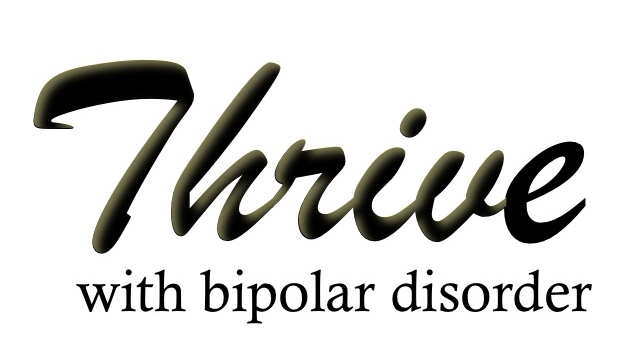You saved my life.
I don’t know who I would be without you.
When you came into my life, I didn’t trust you. I thought you were trying to control me. I was so afraid that you would change my ability to think and be brilliant. I thought you would rob me of my creativity and ability to feel. I thought that if you were in my life, I couldn’t be me and I had no idea as to who I would be.
Something I’ve never told you is how angry I was with you. You took away the most beautiful experience I had ever had. With you I can never have it again. During my mania, before it got nasty and became the scariest experience of my life, I had unlimited power and was able to do anything. I truly believed I was a prophet. It was so easy for me to see my path and allow God to guide me. I had peace…true peace. And you made it so this will experience will never be possible again in this way. I forgive you. What you gave me is worth more than the godliness of mania.
I love you. I love you so much that the idea of not having you within me scares me.
You changed me and I accept that I need you in my life for as long as I can have you.
As I came to trust you and depend on you…you changed how I think and how I feel. You’ve slowed down my thoughts and untangled them so that I can understand and express them with ease. I’ve even gotten pretty good at thinking before I speak and really good at correcting myself after I make mistakes.
You didn’t change my ability to think like I feared you would. In fact, my creativity and imagination, and critical thinking have improved by the clarity you give me through my untangled thoughts. Unfortunately you didn’t improve all of my skills. My hands kind of shake because of you, but I forgive you for that.
I still have the abilities to pay attention, think critically and my memory is phenomenal. Well, most of my memory is phenomenal. It’s kind of funny when I find myself in the kitchen and I don’t know why. You’ve really turned my memory for simple tasks into a joke. And I forgive you.
You changed how I experience my emotions. I always had difficulty crying. Growing up I always needed to be strong. For 10 years on you I couldn’t cry, I couldn’t release my painful emotions, but then I got more of you in me and I can cry whenever I need to. It feels so incredible to cry. Don’t feel bad or guilty, you never kept me from having emotions, I had plenty of them, but with you I couldn’t release them until the last few years.
I don’t know if its good or bad, but I’m no longer as exuberant as I was when I had less of you in my body. When I had less of you I scared people with my energy. I’d walk into the room and people would be so overwhelmed by me and I never could understand why. I felt perfectly normal. But, normal for me was always being hypomanic. I looked happy, but too happy…so happy that no one ever believed I could be that happy which made me scary and weird. I can’t even say I was happy, I don’t think I was happy, but that energy was simply who I was. I’m me now! My energy is more channeled and contained but still full of passion, exuberance and warmth.
Lithium, this may be the greatest gift you’ve given me. Through out my life you have helped me reach my goals by doing your best to successfully prevent full-blown mania. I always had to do my part and you always had my back. Because of you I tackled life challenges and have the quality of life that I was told I would never be able to achieve. Because you did such a good job having my back, I was able to do my part and graduate from one of the world’s most prestigious universities, UC Berkeley and go on to get my Masters degree. I am now doing what I believe I am meant to be doing and trust I am living my purpose.
I love you lithium.
So what that you’ve given my psoriasis and I hate it.
I love you. You are a gift from God.
With All My Gratitude,
Robin Mohilner












